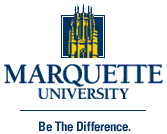 |
COSC 3250 / COEN 4820 Operating Systems
Final Examination
Wednesday, May 8, 2019, 10:30 - 12:30
|
Your final examination will be a two hour, in-class examination. You are permitted to bring and use one 3x5" paper study card, which you will submit with your exam. It may be prepared in any manner you choose. The exam covers Chapters 1 - 12, 16, and 17 of our textbook, plus Internet protocols discussed in class. It is a comprehensive exam. No electronic devices of any kind are permitted. Expectations:
Section and page number references in old exams refer to the edition of the text in use when that exam was given. You may have to do a little looking to map to the edition currently in use. Also, which chapters were covered on each exam varies a little from year to year. Questions may be similar to homework questions from the book. You will be given a choice of questions. I try to ask questions I think you might hear in a job interview. "I see you took a class on Operating Systems. What can you tell me about ...?" Preparation hints:Read the assigned chapters in the text. Chapter summaries are especially helpful. Chapters 1 and 2 include excellent summaries of each of the later chapters. Read and consider Practice Exercises and Exercises at the end of each chapter. Review authors' slides and study guides from the textbook web site Review previous exams listed above. See also Dr. Barnard's notes. He was using a different edition of our text, so chapter and section numbers do not match, but his chapter summaries are excellent. Question: Could you send an email about what we REALLY should focus on as we prepare for the exam?I ABSOLUTELY get it that the exam appears to you very differently from how it appears to me. You have 40 different exams to look at as examples of questions I might ask, so you are able to judge from what I DO, as well as from what I say. This year, since I am allowing you to bring a study card, there might be fewer questions taken directly from previous exams. See what we claim as Course Goals and Objectives Some questions are adapted from questions previous students have reported being asked about operating systems at an interview. Of course, there will be a vocabulary question, in some form. You should AT LEAST know what each line in the Table of Contents means. Of course, there will be a tricky C question. I like to ask a question or two in which you apply knowledge you should know to a situation you may not have considered. If I will ask 6 questions (you write on 5) from 12 chapters, a final examination is a random sampling process. I cannot possibly ask about everything. It may not look like it to you, but I think I try to ask primarily high level conceptual questions, not tricky, detailed questions (except for the tricky C question, which is, well, tricky). I always am tempted to ask, "What are the five BIG CONCEPTS of operating systems? What concept would you rate as #6? Why is it not as important as the first 5?" I will NOT ask that because I do not know how to grade it fairly, but it is a question you should be able to answer. Read and follow the directions:
The university suggests exam rules:
In addition, you will be asked to sign the honor pledge at the top of the exam: "I recognize the importance of personal integrity in all aspects of life and work. I commit myself to truthfulness, honor and responsibility, by which I earn the respect of others. I support the development of good character and commit myself to uphold the highest standards of academic integrity as an important aspect of personal integrity. My commitment obliges me to conduct myself according to the Marquette University Honor Code." Name ________________________ Date ____________
|
| Marquette University. Be The Difference. | Marquette | Corliss | |